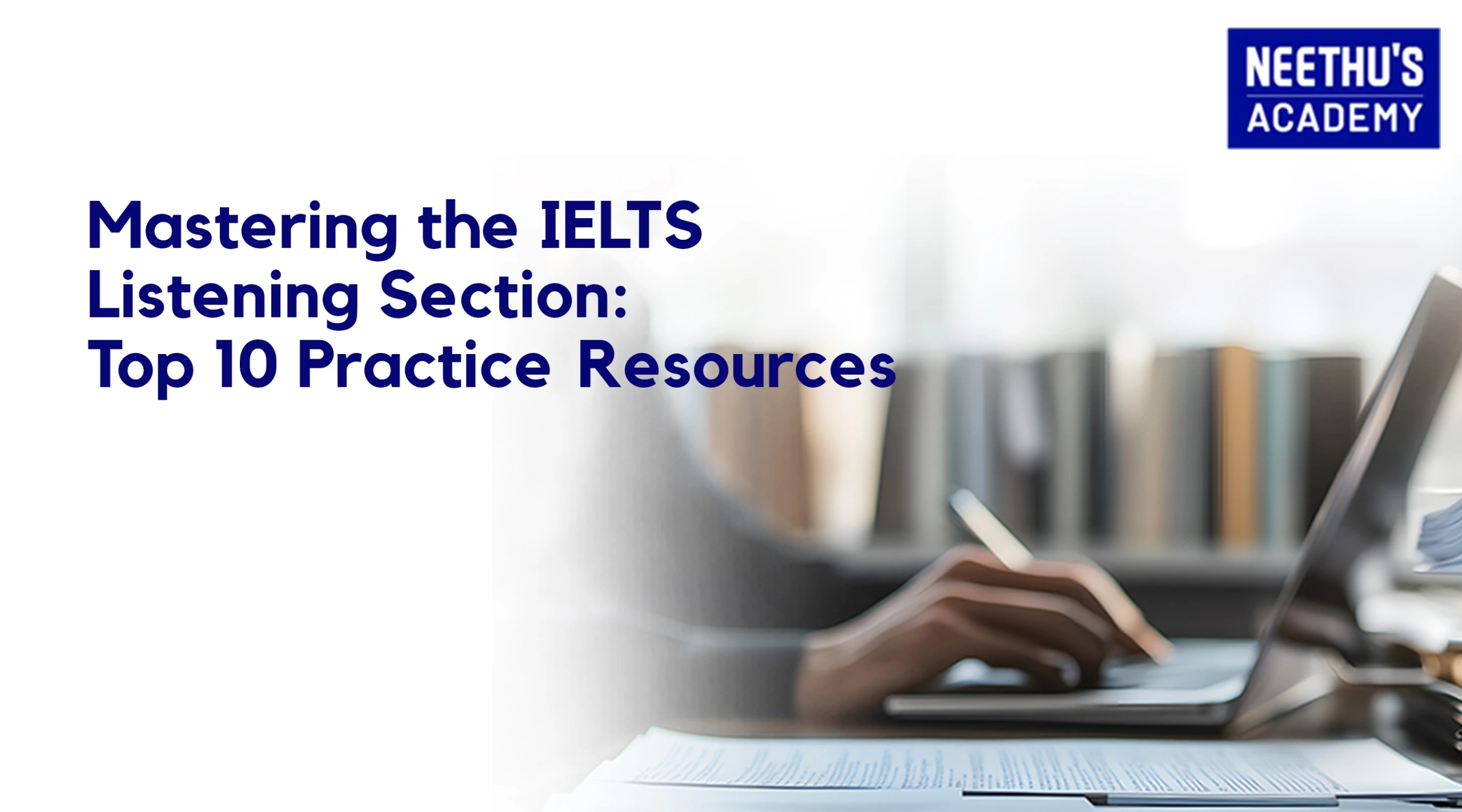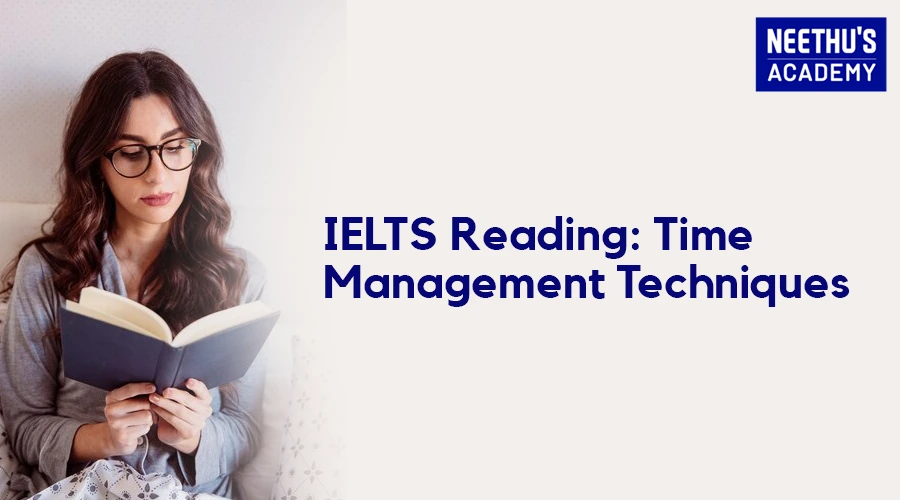IELTS Listening Practice Resources: Top Strategies for Band 8+
The Listening section of IELTS is one of the most critical parts of the test, as it checks your ability to understand spoken English in a variety of situations. However, to get high grades in this module, you need constant practice and quality practice materials. This blog will walk you through the best IELTS listening practice materials and effective techniques and tips for attaining your desired band score.
IELTS listening preparation is the real challenge if one is not exposed to different accents, fast speech, or complex structures of audio recordings. Everything depends on how one would take up the challenge and make it an opportunity to prove his or her language competency. In this blog post, we are going to discuss IELTS listening exercises, top practice resources, common mistakes, and tips on how to improve preparation.
Overview of the IELTS Listening Module
What Does the IELTS Listening Section Assess?
The IELTS Listening section tests your skills in:
- Identifying main ideas and supporting details.
- Understanding the opinions and attitudes of speakers.
- Following the development of a discussion or argument.
- Extracting specific information from dialogues, monologues, or lectures.
Each test has four sections:
- Conversation in a social situation
- Monologue on a topic related to everyday experience
- Conversation in an academic or training situation.
- Academic monologue
Why Practice Resources Matter
Preparation is the key to success in IELTS Listening. Practice resources:
- Create real test day sensations, feel good
- Improve the ability to interpret various accents, speech speed
- Develop crucial skills in multitasking, note-taking, and time management.
Top 10 IELTS Listening Practice Resources
1. Official IELTS Practice Materials
The Official IELTS Practice Materials by Cambridge are the most reliable tools for practice. These materials include sample papers, audio recordings, and answer keys, ensuring you are well-acquainted with the exam format.
Pro Tip: The Cambridge IELTS series (Books 1–18) are a good starting point, as they offer authentic past papers and a realistic exam experience.
2. IELTS Online Test Platforms
There are free and premium practice tests on IELTS Online Tests, IELTS Buddy, and Road to IELTS. These websites simulate conditions just like the test and enable you to practice specific question types.
Example Feature: Use platforms with real-time timers, feedback about your answers, and detailed score analysis.
3. Apps for IELTS Listening Practice
Mobile applications, such as the British Council’s IELTS Prep and IELTS Practice Band 9, provide interactive exercises, mock tests, and follow-up reviews on progress.
Why use them? They are portable and one can learn in small fragmented intervals while commuting or even on a break.
4. Podcasts and Audiobooks
Podcasts, for example, BBC Learning English, as well as audiobooks through Audible websites, expose you to real-life English usage, various accents, and delivery speeds.
Practice Activity: Choose a podcast episode and listen to it with some note-taking and summarization of the content. This will hone your listening and note-taking skills.
5. IELTS Listening YouTube Channels
There’s a vast amount of free content specifically for IELTS on YouTube. Tune in to channels such as IELTS Liz, IELTS Advantage, and even E2Language for listening tips and practice exercises along with full mock tests.
Practice Tip: Keep learning common mistakes that occur while taking IELTS Listening and try to avoid that kinds of mistakes.
6. Mock Tests at Coaching Centers
Mock tests are provided at coaching centers, like Neethu’s Academy. These are very useful for
1. Actual test experience.
2. To develop stamina for listening over long durations
3. Receive personalized feedback to fill gaps
Why It Matters: Systematic practice with experienced lecturers leads to progressive development.
7. TED Talks and Educational Videos
TED Talks are not only motivational but also useful for practice in listening, as these can be very varied topics and languages you are duty-bound to expose yourself to several speaking styles.
Listen to a TED Talk with subtitles, then view it again without subtitles to challenge your understanding.
8. IELTS-Specific Listening Books
Books like “Target Band 7” and “IELTS Trainer” contain listening exercises, answer explanations, and strategies specifically designed for IELTS test takers.
Pro Tip: Choose books that have audio material available to work on listening in real time.
9. IELTS Listening Apps with Dictation
Apps such as Dictation.io and Dragon Dictation allow you to record voice-to-text transcriptions. This will build your concentration on minute details and your general accuracy.
How to Use: Listen to short audio clips and type in what you hear. Compare your transcription with the original text for errors.
10. Practice Groups and Study Circles
Working with other classmates in a study group is very encouraging. The group discussions as well as access to common resources bring new insights and even responsibility.
Activity: Assign roles where one member reads aloud a passage, while others are expected to answer questions based on it.
Key Strategies in Successful IELTS Listening Practice
Listen to Accents
Since IELTS audio recordings include British, American, Australian, and Canadian accents, get accustomed to these by listening to local radio/station programs.
Take Notes Effectively
To score well, one needs to take proper notes. Be able to write down information using abbreviations, symbols, and a layout to save time.
E.g: replace “because” with “b/c”; arrows for cause-effect relationships.
Time Management
Time management can make or break your score. Allocate time to read questions, listen actively, and write answers without rushing.
Practice Tip: Use a timer during mock tests to develop a sense of pacing.
Common Mistakes in IELTS Listening and How to Avoid Them
Missing Keywords
Many answers depend on identifying specific keywords. Missing them can lead to incorrect responses.
Solution: Practice highlighting keywords in questions and listening for synonyms in the audio.
Focusing Too Much on One Question
Focus on one difficult question and lose sight of later answers.
Solution: Continue reading or listening; try to recall the question later.
Ignoring Context Clues
Missing subtleties in details can be compensated for by getting an overall sense of the content.
Solution: Pay attention to the general meaning of what is being said or read.
Best Coaching Center in Kochi for IELTS
Choosing the best coaching center can really add something to your preparation. Look for centers that have:
1. Experienced trainers.
2. Exclusive material and mock tests.
3. Smaller class size to focus individually on students.
Neethu’s Academy in Kochi provides systematic courses and real-time feedback that will help you shine ahead.
Benefits of Learning with us
- Mock Tests: Practice by simulating real examination conditions.
- Feedback: Mistakes and improvements are identified and suggested by experienced trainers.
- Access to study material: practice resources are available exclusively.
Conclusion
The IELTS Listening Section needs extensive practice along with trusted resources and effective techniques. From the official IELTS material to the study group, every study material works toward attaining confidence and skills.
Utilize these IELTS listening practice materials to improve your techniques and approach the exam full of confidence. So set your target band score in motion from today and step closer to your dream with each practice session!
Frequently Asked Questions





